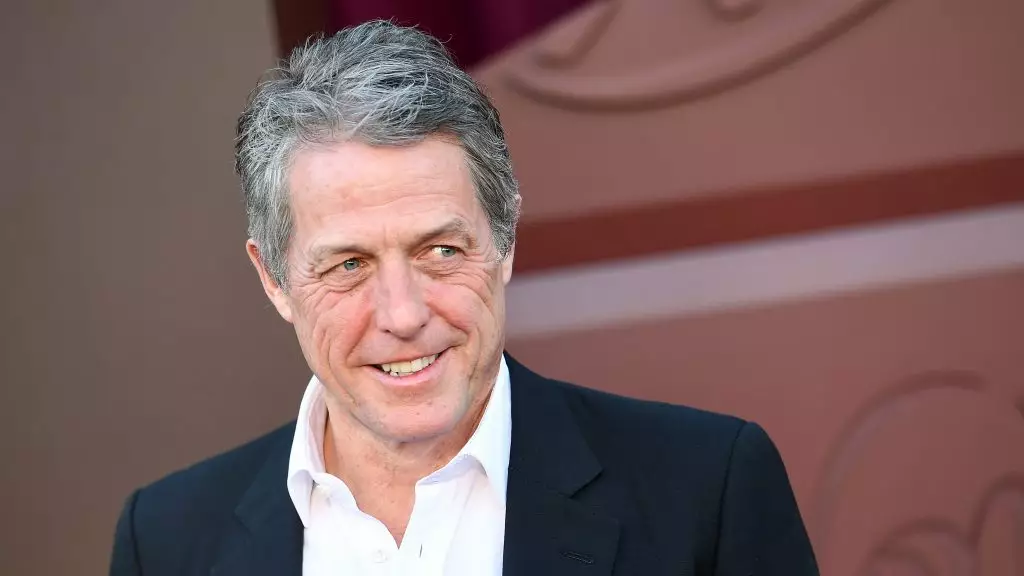Hugh Grant, the quintessential British actor known for his romantic leads, has experienced a significant metamorphosis in his career, attributed in large part to his collaboration with the Wachowskis in their 2012 film, *Cloud Atlas*. This project not only revived his status in Hollywood but also challenged him to shed the constraints of his previous roles. Reflecting on this transformative experience, Grant shared insights on his career trajectory, his approach to acting, and his aversion towards certain industry practices.
In a candid interview with Vanity Fair, Grant recounted a pivotal moment in his career following the underwhelming reception of *Did You Hear About the Morgans?*, a romantic comedy that failed to resonate with audiences. Finding himself “completely marooned,” Grant credits the Wachowskis for offering him a lifeline in the form of multiple roles in *Cloud Atlas*. Despite initially believing that his casting stemmed from the demands of distributors looking for recognizable names, Grant nevertheless seized the opportunity to explore diverse characters that deviated from his established persona.
The film, an adaptation of David Mitchell’s 2004 novel, presents an intricate tapestry of six interconnected stories spanning centuries and genres. Grant’s participation in roles that diverged from the romantic hero archetype allowed him the creative freedom to embrace antagonistic characters. The sheer complexity of these roles challenged him to reconnect with a sense of enjoyment in acting, which had waned over the years as he found himself pigeonholed into a specific type of character.
One of the most compelling aspects of Grant’s commentary involves his reflections on character complexity. He articulates a profound understanding that a villain must transcend the stereotypical “mustache-twirling” archetype and delve into the emotional depth of their humanity. His remarks about needing to reach the “quivering jelly” within characters resonate with a broader shift within the industry where actors increasingly demand complexity from the roles they portray. Grant laments that the romantic lead roles, while commercially successful, lacked the depth and challenge that he craved, thus leading to his departure from such characters.
Grant’s ability to embrace the duality of a character—balancing villainy with emotional vulnerability—marks a significant evolution in his craft. In *Cloud Atlas*, he navigates a landscape of historical and speculative fiction, allowing him the unique opportunity to explore various facets of human experience, ultimately contributing to a performance that resonates on multiple levels.
In addition to his reflections on character portrayal, Grant has begun to adopt a discerning approach to project selection. By being selective with the directors he collaborates with, he aims to ensure that his artistic integrity remains intact. Although many actors may be tempted by big production values or star-studded casts, Grant’s emphasis on the creative independence of filmmakers serves as a testament to his commitment to quality storytelling. His strategy involves direct communication with directors to understand the artistic vision and overall quality of a project.
This careful consideration is crucial in an industry that often prioritizes commercial success over artistic narrative. By aligning himself with projects that resonate with his personal ethos and artistic goals, Grant fortifies his career while contributing to films that strive for meaningful storytelling.
As Hugh Grant steps further away from romantic lead roles, his career increasingly embodies a blend of strategic career choices and artistic exploration. The transition facilitated by *Cloud Atlas* not only expands his range as an actor but also paves the way for a new generation of performers who are willing to challenge stereotypes and redefine what it means to be a lead in modern cinema.
Grant’s journey through *Cloud Atlas* symbolizes a broader reclamation of an actor’s craft, wherein depth, nuance, and authenticity take precedence over traditional boxes of commerciality and typecasting. As the industry evolves, so too does the scope of characters portrayed, with actors like Grant leading the charge into richer, more complex storytelling.


Leave a Reply